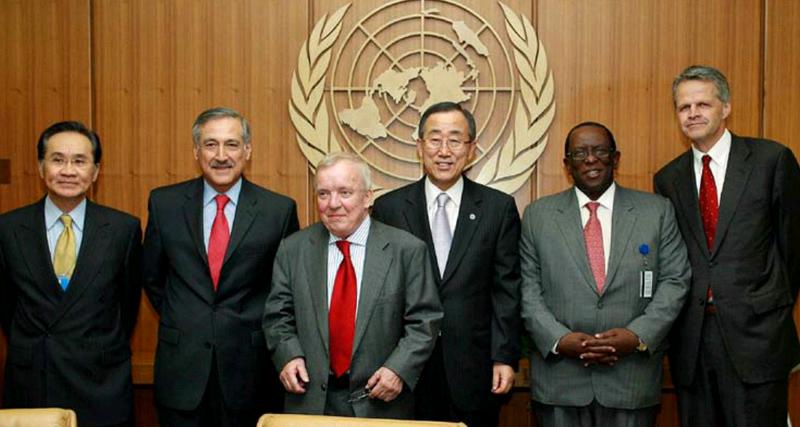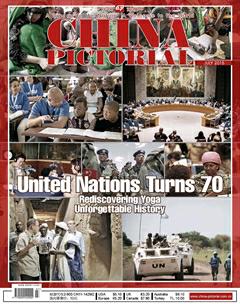United Nations:A 70-Year Journey
Establishment of a New International Organization
This year marks the 70th birthday of the United Nations (UN). An intergovernmental organization, the UN was established in 1945, at the end of the Second World War. However, preparations for the UNs establishment started long before. On January 1, 1942, 26 governments, including China, the United States, Britain, and former Soviet Union met as they fought fascist countries of German, Japan, and Italy, and issued Declaration by United Nations in Washington D.C., emphasizing world order with a comprehensive security system be established after defeating their common enemies. At that time, the term “United Nations” was coined to describe the Allied countries, not the international organization that would come into being. But later, the term was adopted for the entire organization.
On October 30, 1943, China, the United States, Britain, and the former Soviet Union signed Declaration of the Four Nations on General Security, recognizing the necessity to establish a general international organization as soon as possible. In February 1945, the United States, Britain, and the former Soviet Union held the Yalta Conference in a Russian resort town. Allied leaders discussed the future of the UN and decided to hold a conference to draft the United Nations Charter. On October 24, 1945, the UN officially came into existence, upon ratification of the Charter.
The UN is composed of six main organs, namely, the General Assembly, the Security Council, the Economic and Social Council, the Trusteeship Council, the International Court of Justice, and the UN Secretariat. All were established in 1945 when the UN was founded. Of them, the Security Council is the only UN body with the authority to issue binding resolutions to member states. It includes five permanent and 10 non-permanent members. China, France, Russia, Britain, and the United States are the five permanent members.
During the UNs development, the key issues it has addressed have gradually expanded from the original task of maintaining international peace and security to a wider range of fields including economic growth and sustainable development, human rights, humanitarian assistance, justice and international law, drug control, crime prevention and counter-terrorism.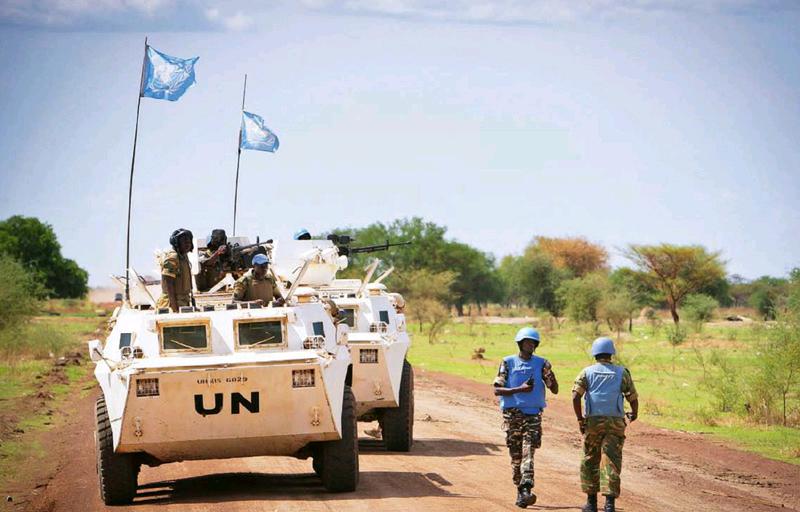
UN Members
Today, the UN is a large family of 193 member states. China, as a charter member of the UN and one of five permanent members of the UNs Security Council, began its relationship with the UN 70 years ago. However, after the Peoples Republic of China was founded in 1949, it was deprived of its lawful seat in the UN until 1971. That year, with support from many countries, especially those from the Third World, China regained its lawful seat in the UN. After the resolution that restored the lawful rights of China in the UN was passed on October 25, 1971, many Western countries that had previously strongly opposed Chinas return to the UN changed their attitudes almost immediately. According to Zhou Nan, first secretary of the Chinese delegation to UN, at the welcome ceremony for China on November 15, George H. W. Bush, then United States Ambassador to the United Nations, remarked that although he had opposed Chinas reentry into the UN, he welcomed the country since it had already joined. Later, with Chinas gradually deepening understanding of the UN and the countrys implementation of reform and opening up, China began participat-ing more actively in the United Nations. Today, China is active in many fields including peacekeeping operations, economic development, human rights, and environmental protection.
Along with China, the former Soviet Union and the United States are key members of the organization. Also a charter member of the UN, the former Soviet Union played a role in many stories in UN history. For example, in October 1960, Soviet Premier Nikita Khrushchev – on the worlds largest political stage, the UN General Assembly – angrily denounced Lorenzo Sumulong, the leader of the Phillipine delegation, as “a jerk, a stooge, and a lackey of imperialism.” According to media reports, Sumulong had questioned Khrushchev about his stance on Western imperialism as the Soviets had, themselves, swallowed all of Eastern Europe. The premier allowed his temper to flare and furiously banged his right shoe on the podium, earning him the nickname “Hurricane Nikita.”
During its 70 years of development, the count of UN member states has grown to the current 193 from the original 51. Although the Soviet Union no longer exists, Russia, the foundation of the former Soviet Union, still attracts global attention. Its important role in the UN and its leaders ability to cause a stir havent changed.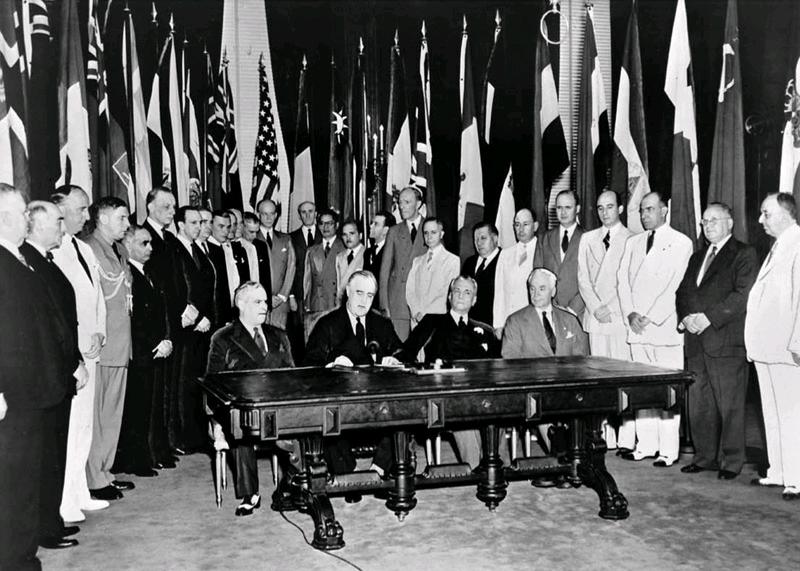
The United States and the UN have maintained strong ties from the very beginning. In 1942, US President Franklin D. Roosevelt coined the term “United Nations.” In 1945, the organi- zation was established in San Francisco and its headquarters are based in New York City. Even during the organizations incubation, the UN and the United States were always closely related. However, during the Cold War, due to abuse of the Security Councils veto rights by the US and the former Soviet Union, the UN found systematic work difficult to carry out. In recent years, to some extent, the US and the UN have become more distant and conflicts have increased. On several occasions, the US has refused to pay assessments levied on it under the United Nations Charter.
Achievements and Challenges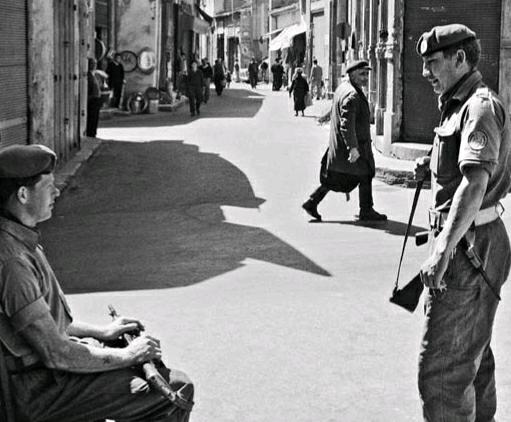
During its 70 years of development, the United Nations has made remarkable achievements in many aspects. Since it was created following WWII to prevent another such conflict, one of the most important goals for the UN remains to stabilize international relationships and construct a more solid base for world peace. While the shadows of potential nuclear war as well as regional conflicts have always remained, maintaining world peace has continued to be the UNs biggest objective. Today, to maintain international peace and security, the UN carries out many missions such as conflict prevention, arbitration between conflicting parties, peacekeeping, and creating an environment able to foster and maintain peace.
Another important goal for the UN is the promotion of its member states sustainable development. Since the UN was established after WWII, member states have increasingly realized the great importance of poverty reduction and economic development to maintain international peace and security. The Millennium Development Goals, featuring eight international development goals, have galvanized unprecedented efforts to meet the needs of the worlds poorest and improve millions of lives.
Additionally, the UN actively responds to needs and crises related to human rights and humanitarian assistance. The word“human rights” appears seven times in The Charter. Protection and promotion of human rights has been designated a major goal and guiding principle of the UNs work. Today, the UN continues to respond to humanitarian needs and emergencies resulting from conflicts or global challenges such as climate change and environmental degradation.
However, although its work has achieved remarkable successes, the UN still faces many challenges today. Problems such as the tendency of Americanization, poor work efficiency, overstaffing, and slow reform have been criticized for a long time. In recent years, the question of “who should supervise the UN” has arisen as a global concern. In the early 21st Century, after several incidents such as scandals involving UN officials and corruption cases, the UN was even considered as “corrupt and incompetent”by some radicals. To complete its reform goals, including reform to strengthen the capacity of the UN to coordinate international efforts to tackle global challenges and enhance its efficiency, and reform to transform the UN into a fairer organization capable of ensuring justice and better protecting the interests of developing countries, the UN still has a long way to go. As current UN Secretary-General Ban Ki-moon remarked, “We indeed have taken painful detours, and the road ahead remains a long one.”